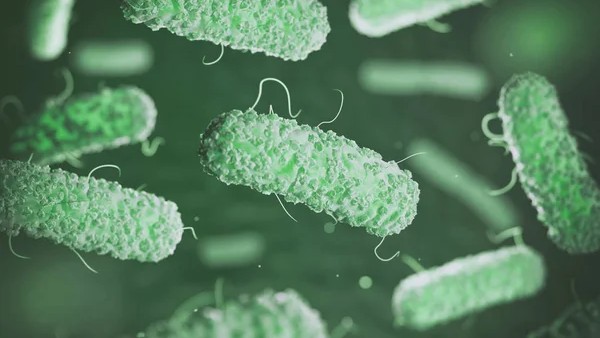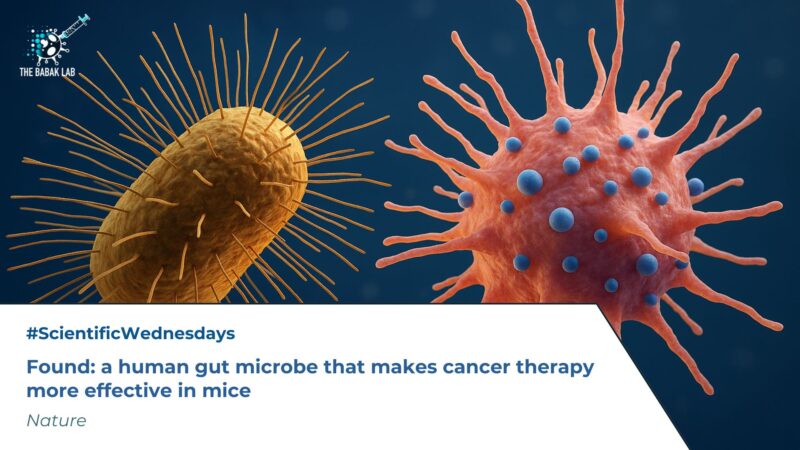
Maria Babak: How One Gut Microbe Can Reshape the Immune Response to Cancer
The Butterfly Effect of Biology
Small things can have a big impact, and even a single microbe can change the game.
In science, as in nature, tiny agents can trigger massive change: the flutter of a butterfly’s wings altering the weather, a single mutation rewriting a genome, or an invisible microbe sparking a cure. That’s why sometimes, the smallest players make the loudest difference.
Maria Babak, Head of The Babak Lab and Assistant Professor at City University of Hong Kong, shared a post on LinkedIn by The Babak Lab about one gut bacterium that has been shown to reshape how the immune system responds to cancer, potentially helping more patients benefit from immunotherapy.
“Incredible to see how one gut microbe can reshape the immune response to cancer.
This study adds real weight to the idea that the microbiome could become a critical piece of future immunotherapy strategies.”
Quoting The Babak Lab‘s post:
“Scientific Wednesdays: Gut Bacterium Boosts PD-1 Immunotherapy—New Evidence from Human-Derived Microbes in Mice
A recent Nature report highlights the discovery of a human gut microbe, Hominenteromicrobium mulieris strain YL44, that significantly enhances the anti-tumor effects of PD-1 checkpoint inhibitors in mouse models.
Study Focus:
Explore whether specific gut bacteria from PD-1 responder patients can improve immunotherapy outcomes when transferred to non-responding hosts.
Experimental Highlights:
- Fecal transplants from PD-1 responder vs non-responder patients into germ-free mice
- Identification of H. mulieris strain YL44 as the key immune-modulating bacterium
- Co-administration with anti–PD-1 led to stronger tumor control in multiple mouse cancer models
- YL44 triggered activation of dendritic cells in the gut → migration to tumors → enhanced CD8⁺ T cell responses
Key Findings:
- H. mulieris YL44 boosts the effectiveness of PD-1 inhibitors
- Stimulates gut dendritic cells, leading to stronger systemic antitumor immunity
- Establishes a clear mechanistic link between the microbiome and checkpoint blockade efficacy
Conclusion:
This study strengthens the case for microbiome-based co-therapies in cancer treatment. Targeted microbial supplementation could enhance immunotherapy response rates in previously nonresponsive patients.
Image generated using Sora by OpenAI.”

More posts featuring Maria Babak on OncoDaily.
-
Challenging the Status Quo in Colorectal Cancer 2024
December 6-8, 2024
-
ESMO 2024 Congress
September 13-17, 2024
-
ASCO Annual Meeting
May 30 - June 4, 2024
-
Yvonne Award 2024
May 31, 2024
-
OncoThon 2024, Online
Feb. 15, 2024
-
Global Summit on War & Cancer 2023, Online
Dec. 14-16, 2023
